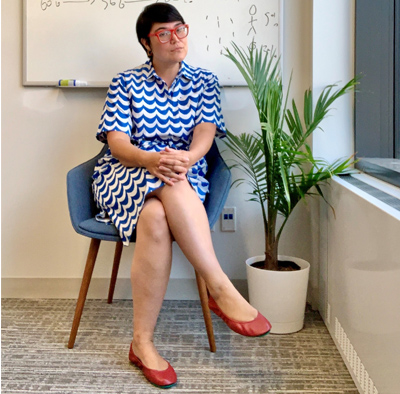Fumiko Chino, MD

Please tell us about your role at Memorial Sloan Kettering Cancer Center and your research interests.
I am an Assistant Attending specializing in the treatment of Breast and Gynecological Cancers at MSK. My research is focused on the financial toxicity of cancer care, health care disparities and access, patient reported outcomes, shared decision making, survivorship and end-of-life care. I am passionate about optimizing cancer treatment processes and costs to improve the overall patient experience and decrease disparities in high quality, high value care.
Why did you choose radiation oncology as your specialty?
My mother is a radiation oncologist. I remember spending time in her office coloring when she was treating someone over the weekend or late at night. I was (and still am) so proud to have a physician mom, especially one in such a technical field. I think it certainly contributed to my desire to go into radonc and gave me a unique perspective on the field.
How do you envision the future of the field of radiation oncology? In what ways would you like to see it grow or evolve?
Radiation oncology is a field which continues to reinvent itself with each technological and biological advance. Given the known disparities in the delivery of high quality cancer care, I’d like to see the field evolve into one where the equitable delivery of specialty care is valued as heavily as other care delivery advances. This will only be achieved if current barriers like access, costs, communication are improved.
What prompted you to become a member of the ROI President’s Circle in 2020 with an overall contribution of $1,500?
I know the incredible benefit of research funding to an early career Radiation Oncologist because I have benefitted from it myself. The ROI 2018 award for Innovative Projects supported my work to document the financial toxicity of radiation treatment and was an important step for me to establish a new field of patient centered research within radiation oncology. As I have transitioned from a resident to an attending, I felt it was essential I gave back into the community that supported me.
What would you tell others who are considering a financial contribution to the ROI? Why should they support the ROI?
ROI has been working for years to highlight the critical role of radiation in cancer treatments and to support research that promotes our field. A donation to ROI is an investment in the future of radiation oncology and a contribution to the larger community.














